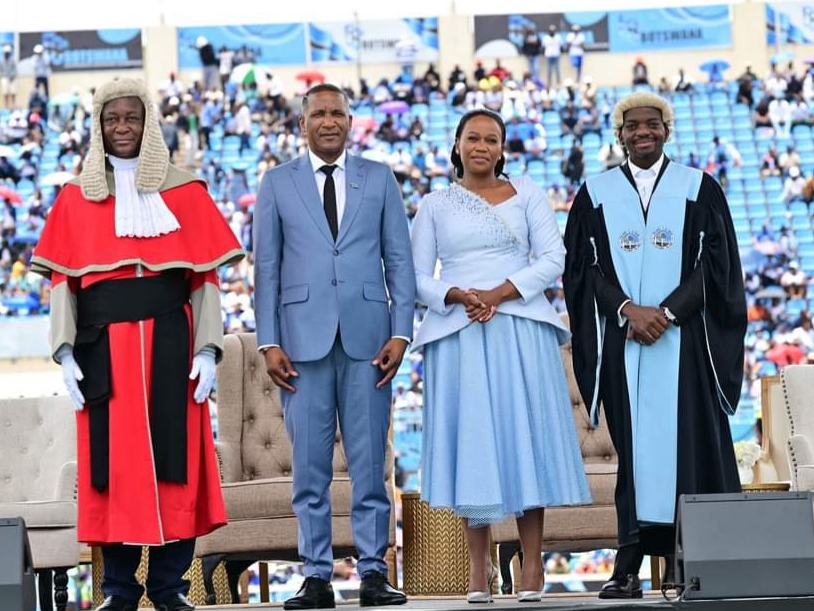For the first time in 58 years, Botswana is witnessing a major political transition, a historic shift that brings both excitement and uncertainty. In this watershed moment, voters have spoken, signaling their desire for a new governance model grounded in human rights, transparency, and inclusive leadership. As the country stands on the threshold of a new era, the anticipation surrounding this transition is palpable. But as the political landscape shifts, there are fundamental questions: what does a government rooted in human rights principles mean for Botswana? And why does this vision resonate so deeply with the people?
A Historic Moment for Botswana
Botswana, known for its long-standing stability in a region often marked by political turbulence, has remained a model of democracy in Africa. The peaceful handover of power has traditionally been a hallmark of the nation’s democratic processes. However, this particular transition is different. It represents more than just a change in leadership; it is the beginning of a new chapter, one where the values of human rights and inclusive governance will play a central role in shaping the future of the country.
The decision by Botswana’s voters to endorse a vision of governance focused on human rights is both symbolic and practical. It underscores a collective desire for a more transparent, accountable government that serves the needs of all its people, especially the marginalized.
Expectations from a Government Focused on Human Rights
For many in Botswana, human rights have always been an essential part of the nation’s democratic framework. However, the incoming government will be expected to do more than just safeguard these rights—it will be tasked with actively promoting and protecting them. This includes addressing critical issues such as freedom of speech, equality, and the protection of vulnerable groups.
Expectations are high that the new government will prioritize civil liberties, ensuring that every citizen, regardless of gender, ethnicity, or social status, is treated with dignity and respect. This is particularly important in a nation where economic inequality and disparities in access to services such as healthcare and education have become growing concerns.
Furthermore, the public will look to the new leadership to reinforce the protection of fundamental rights within the legal system, ensuring that laws and policies align with international human rights standards.
Transparency: A Pillar for Trust and Accountability
Transparency is another cornerstone of the expectations for the new government. For years, Botswana has built a reputation for its relatively low levels of corruption compared to many other African countries. However, the incoming leadership will be expected to maintain and deepen this commitment to transparency, ensuring that public resources are used efficiently and that the government is held accountable for its actions.
Citizens will expect more open communication from the government, especially in relation to policy decisions, resource allocation, and financial management. Greater transparency will not only foster trust between the government and the people, but also provide a check against corruption and misuse of power.
Inclusive Leadership: Bridging Divides for a Stronger Nation
Inclusive leadership is perhaps the most significant expectation for the new administration. In a diverse society like Botswana’s, where various communities—rural and urban, young and old, male and female—have distinct needs and aspirations, an inclusive government will be key to national unity and progress. The people of Botswana are calling for a leadership that listens to all voices and strives to ensure that every segment of society benefits from the country’s growth.
This vision of inclusive leadership resonates deeply with the people because it offers a sense of belonging and recognition for all. It seeks to create a society where no one is left behind, where every citizen has the opportunity to contribute to and benefit from the country’s development.
Why This Vision Resonates with the People
Botswana’s political culture has long been shaped by a strong commitment to democratic values. The country has consistently held free and fair elections, and its citizens have demonstrated a clear desire for a government that upholds their rights and fosters a sense of equity. In this context, the shift toward a governance model rooted in human rights, transparency, and inclusive leadership speaks directly to the aspirations of the people.
Moreover, the rise of social media and increased political engagement has empowered citizens to demand more from their leaders. They are no longer passive recipients of policy but active participants in shaping the future of the country. This growing demand for accountability, fairness, and inclusivity has created an environment where a government grounded in human rights is not just an ideal but a practical necessity.
Botswana’s first transition of power in nearly six decades is a defining moment for the nation. It marks the beginning of a new chapter in which human rights, transparency, and inclusive leadership will take center stage. As the country embarks on this new journey, the expectations placed on the incoming government are high, but the promise of a more just, equitable, and transparent society offers hope to all citizens. Botswana’s commitment to these principles will not only shape its future but could serve as a beacon of democratic governance in Africa for years to come.










